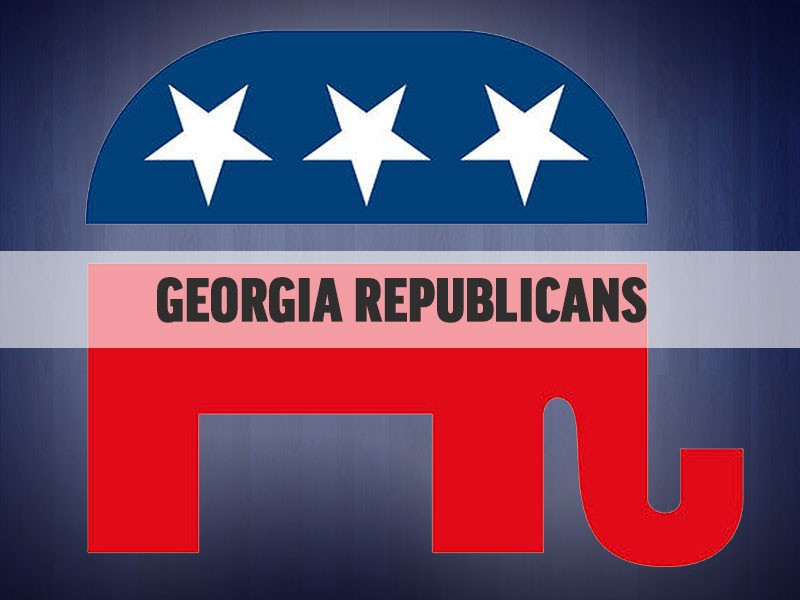ATLANTA (AP) — Georgia Republicans have again proposed legislation they argue will protect people acting on religious belief, undaunted by the forceful veto of a similar proposal last year by the state's Republican governor.
The bill filed Tuesday revived heated opposition from the state's business community and advocates who fear it will excuse discrimination against LGBT people.
Sen. Marty Harbin, a Republican from Tyrone, has 18 co-sponsors, but the proposal's odds of becoming law in a GOP-led state aren't clear. Key members of Senate leadership aren't among the list of supporters, and House Speaker David Ralston, R-Blue Ridge, has said he'd prefer to see Congress take the lead on the issue.
Conservative Republicans have tried since 2014 to pass bills granting various types of legal protection to religious people. None of the proposals reached the governor's desk until last year.
Deal, who is constitutionally limited to two terms, was pressured by religious conservatives in favor of the bill and major corporations that threatened to leave the state if it became law, including warnings from the NFL that Atlanta's bid to host a Super Bowl was in jeopardy. In his veto message, Deal said he found no situation in Georgia that merited the change and added that protection of religious belief "is best left to the broad protections of the First Amendment to the United States Constitution."
Harbin's proposal requires that a 1993 federal law called the "Religious Freedom Restoration Act" apply in Georgia. According to the American Civil Liberties Union, similar legislation has been introduced this year in five states: Colorado, Oklahoma, Hawaii, Minnesota and West Virginia.
The federal law requires that governments being sued prove that a law meets a "compelling" interest and doesn't substantially restrict someone's ability to practice their religion. The U.S. Supreme Court ruled in 1997 that the law didn't apply to states, prompting a wave of state-level legislation that picked up again in recent years.
Deal, who was in the U.S. House before running for governor, voted for the federal law. Supporters of the bill hope this year's approach will convince him to sign off, said Mike Griffin, public affairs director for the Georgia Baptist Mission Board. The organization has been among the chief supporters of previous legislation and vowed to try again this session.
"The (governor's) veto of the 2016 legislation has just caused us to work even harder at trying to pass minimum standards of religious liberty like he voted for in Congress," Griffin said. "We feel this is the best bill we can give him."
The change hasn't placated some of the Capitol's most influential organizations. Officials with the Georgia Chamber of Commerce and Metro Atlanta Chamber issued a joint statement on Tuesday indicating opposition.
"Gov. Deal clearly stated in his veto statement last year why this type of legislation was already a constitutional right, unnecessary and would distract from our strong performance in creating new jobs in our state," the statement said. "While there's no new evidence to suggest this legislation is needed to strengthen a right guaranteed by our constitution, there is plentiful data other states have suffered and will continue to suffer long-term economic harm for enacting a law that many see as discriminatory."
A coalition of businesses called Georgia Prospers also announced Tuesday that more than 600 companies have pledged to oppose proposals "that allow discrimination or appear to allow discrimination." The organization pointed to business backlash last year to a North Carolina law requiring transgender people to use restrooms in public buildings that correspond to the sex on their birth certificates.
"The bigger our numbers and the more legislative districts where we have members, the less likely we are to confront legislation that would hurt our state's well-earned brand as a great place to do business - and a welcoming place to live and visit," said Ronnie Chance, the group's chairman.

http://accesswdun.com/article/2017/2/504477/debate-over-religious-freedom-returns-to-georgia-legislature
